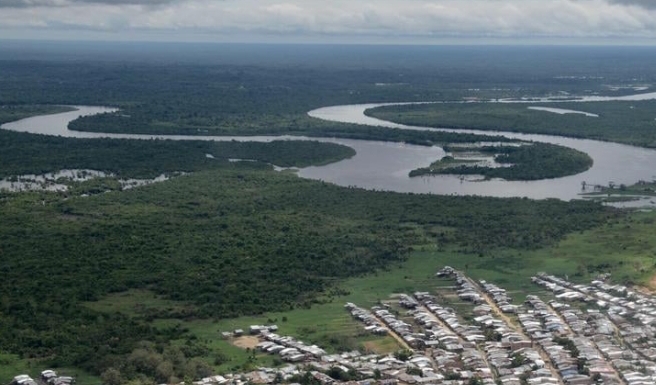Veteran Peruvian journalist Raul Celis Lopez was shot dead in a targeted attack, highlighting rising violence against reporters and declining press freedom in Peru.
Veteran Peruvian Journalist Shot Dead in Targeted Attack Amid Rising Press Violence


Peruvian journalist Raul Celis Lopez was shot in the head by two unidentified men riding a motorbike while he was on his way to work in Iquitos on Wednesday, traveling in a motorbike taxi.
Lopez had been reporting from Iquitos, located deep in the Peruvian Amazon, for over thirty years.
The 70-year-old radio host was known for regularly addressing issues such as corruption and the violence carried out by armed gangs that afflict Iquitos, on his daily current affairs program.
According to Reporters Without Borders (RSF), "None of his personal belongings were taken, a strong indication that this was a targeted execution."
Press freedom organizations swiftly condemned the killing.
The Inter American Press Association expressed sorrow over the death of the journalist, describing him as someone "known for his denunciations of corruption, extortion, and crime in the region."
Jose Roberto Dutriz, president of the Inter American Press Association, stated, "We are deeply alarmed by the upsurge in violence against journalists in Peru."
The National Association of Journalists of Peru called for a "prompt and rigorous" investigation into Lopez's death.
RSF described the killing as a "tragic wake-up call," emphasizing that "Journalists reporting on the social, political and environmental realities of the Amazon are being left without protection."
Lopez's murder marks the second killing of a journalist in Peru this year.
In January, Gaston Medina, the owner of a regional TV channel, was shot and killed outside his home in the south-central city of Ica.
Medina had also been reporting on the surge of extortion in the country.
Peru is currently facing an unprecedented wave of racketeering and gang-related violence, prompting authorities to declare a state of emergency in several regions.
At the same time, the country has experienced a sharp decline in media freedom, falling to 130th place out of 180 countries on RSF's 2025 Press Freedom Index—a drop of 53 positions since 2022.

 বাংলা
বাংলা  Spanish
Spanish  Arabic
Arabic  French
French  Chinese
Chinese 
